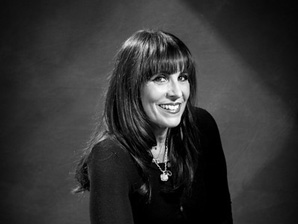Growth Spurts and Strained Muscles: When Businesses Hurt (Chapter 4)
 Reading Time: 3 minutes
Reading Time: 3 minutesWeWork is going through some growing pains.
Although the founder is just out of millennial range (36), he started the company when he was only 30. The business media this week was filled with the news that WeWork had eliminated its bagels-and-lox company breakfasts and cut its revenue and profit targets. I’m sure the company will be able to turn itself around and prosper…they just need to rethink some of their operations.
Ironically, I had just been telling a colleague the other day when that Citibank (my former employer — decades ago) did away with its executive dining rooms and sent around a note asking employees to keep long-distance phone calls and car service expenses to a minimum. We all had fun, fun, fun until our daddies took our T-Birds away. (If you don’t know what that refers to, you’re probably NOT a Boomer, but you can figure it out here.) People, free food, space, and fun are the first things to go when costs need to be cut. (But be wary of cutting too deep or cutting the wrong things! See the tips at the end of the article.)
Corporate belt-tightening is nothing new. The belt used to an expensive Italian leather style accessorizing a pinstripe suit. Although fashion has changed (and belts aren’t really even necessary on jeans and surfer shorts), sucking-in and skinnying-down expenses during tough times is a timeless practice.
This next generation of entrepreneurs (like the dot-com people who came before them) don’t necessarily realize that rapid growth can result in rapid problems. Birchbox, which revolutionized retail sampling, just laid-off 15% of its workforce. Tech companies are retrenching, VC companies are getting cautious, and this insightful article from the Wall Street Journal talks about the tech boom “hangover.”
That’s not to say that Boomers don’t hit the wall too. A late-life entrepreneur, I grew my business quickly and got a little (or maybe a lot) cocky. When the recession hit, I was totally unprepared and although I never served bagels and lox, I had to make some significant changes in my business — stripping it all the way back to a one-person operation until I could reflect, reposition, and rebuild. I now have the benefit of that learning (at both a corporate and entrepreneurial level) and am ready to “go to the matresses” at any moment.
What I have noticed is that one of the things that differentiates many Millennials from many Boomers is the latter group’s willingness to listen to older and wiser consultants and people who have direct experience. We realize that people who have lived longer or done different things can sometimes provide a perspective and insights that their peers cannot. I chuckle to myself when I see job ads for CMOs which require hands-on knowledge of programming languages rather than success launching, growing, sustaining (and even successfully downsizing or re-directing) businesses — through good times and bad.
Sadly, I rarely meet start-up tech companies at WeWork with employees over 35. One fellow WeWorker even put in a job ad that she was seeking a “young” copywriter (which, by the way, is illegal — like targeting advertising to a particular ethnic or religious group).
Just as Boomers shouldn’t readily dismiss Millennials, young entrepreneurs should realize that older (and sometimes wiser) business advisors have something to say. We know that if our kids drive too fast, hang out with the wrong people, or drink a fifth of scotch, they may ultimately regret it. We also know some of the long-term dangers of managing a business as if you’re always in growth mode. (Of course, Millennials don’t know it all…I frayed my miniscus a couple of years ago attempting CrossFit. Knowing ones limitiations and risks is important at any age).
Although we’re living in an era that’s totally different from the times before it (with “disruptive” products and services that never existed before), we are all too aware that excess in business — as in life — can result in pain at a later date.
Millennial entrepreneurs don’t necessarily have the long-term vision of seasoned business managers. Strategic planning is a dying art. Young business owners focus on disrupting, but don’t necessarily focus on sustaining. Both are important in long-term business survival and prosperity.
So, if you’re a young growing company, look twice at the resume or pitch from the 50+ consultant. We’re not all risk-averse party-poopers. Listening to what we have to say may result in your earning back that lox!
Expansion & Belt-tightening help:
- Where start-ups should spend
- Do’s and don’ts of downsizing
- 7 signs your business is in trouble
- What might happen with VC in 2016
- Not tightening your belt? Here are the most expensive belts in the world (literally)
NOTE: This is Chapter 4 in a 10-part series of the “Millennial-Boomer Thing.” Please subscribe at badgirlgoodbizblog or connect with me on LinkedIn to see all the updates.

